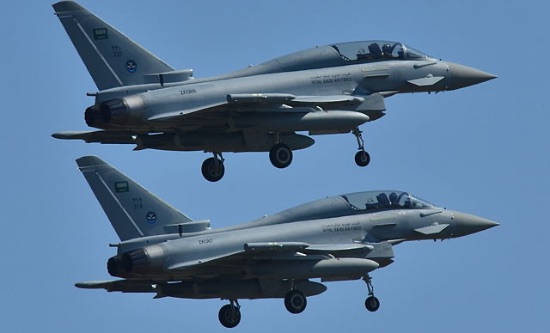
While the world’s eyes are on Ukraine, the Yemeni civil war fuelled by British, US and European arms has intensified drastically in the past several months. The Covid-19 pandemic devastated supply chains and exacerbated Yemen’s humanitarian catastrophe. Now the outbreak of war in Ukraine and sanctions against Russia threaten to cut off Yemen’s grain supply, at a time when famine already stalks the country. With half the population dependent on rapidly diminishing aid from the UN World Food Programme (WFP), eight million people are threatened with imminent starvation.
The war has raged for eight years. In late 2014, a popular uprising led by Ansar Allah (known as the Houthis) ousted the corrupt Western-backed government of Abdrabbuh Mansur Hadi. The following year, a retaliatory war led by the gulf dictatorship of Saudi Arabia was launched in defence of the former regime. The Houthi-led Supreme Political Council, falsely described as an Iranian proxy by the bourgeois media, controls the west and north of the country including the historic capital Sana’a. The remainder is split between the Southern Transitional Council (backed by the United Arab Emirates), the Saudi puppet regime headed by Hadi, Islamist groups and non-aligned local forces. As many as 390,000 people have died, an estimated 40% of these killed directly in fighting and the rest from indirect causes such as disease and hunger. Almost 9,000 civilians have been murdered in over 24,000 airstrikes by the Saudi-led coalition. A naval blockade by Saudi Arabia and its allies controls the flow of aid into the country. The UN estimates that if the conflict continues, it will lead to 1.3 million deaths by 2030.
The Saudi-led coalition war machine would grind to a halt within days without the constant flow of arms, expertise and on-the-ground logistical support from Britain, the US and European allies. In 2010-2019, the Middle East was the biggest market for weapons, spending $289bn; of which $66bn went to Britain’s arms industry. Saudi Arabia imported $116bn worth of arms, more than any other country in the world. The UAE, the second major belligerent against Yemen, spent $24bn. Despite campaign trail promises to end arms sales to Saudi Arabia, the US Biden administration has merely scaled back its activity to providing ‘defensive support’. On 4 February the US State Department approved sales of missile defence systems worth $53.7m to Saudi Arabia and the UAE to protect them from retaliation by Houthi forces. The sale of 70 fighter jets to Jordan, valued at $4.2bn, was also approved.
The butchery is reaching terrifying levels. The number of civilians killed by air raids has nearly doubled since October 2021, after the UN Human Rights Council voted not to renew the mandate of the independent monitoring group investigating war crimes. January 2022 was feared to be the deadliest month yet in the war. Escalating involvement of the UAE-backed Giants Brigades prompted the Houthis to launch strikes against oil tankers and an airport under construction in Abu Dhabi on 17 January, using drones and cruise missiles. The Biden administration removed the Houthis from the US’s list of terrorist organisations in February 2021, but Biden has now promised to review this in response to Emirati demands.
On 15 February, special envoy for Yemen Hans Grundberg pleaded to the UN Security Council that a peace process must urgently begin. Instead, on 3 March, the Security Council voted for a one-sided arms embargo against the Houthi-led opposition, proposed by Britain, a blessing for Western-backed forces to ramp up their onslaught. Russia voted in favour of the embargo in return for the UAE abstaining on a vote to condemn Russian intervention in Ukraine. On 16 March British Prime Minister Boris Johnson jetted to Saudi Arabia and the UAE to convince those countries to use their spare oil production capacity to replace Russian supplies. They are in the OPEC+ oil cartel, which includes Russia; the cartel is not expected to increase output further, but Saudi Aramco will increase capital investment to at least $40bn in 2022, up from $32bn in 2021.
Even as the violence escalates, food supplies to Yemen are dwindling away to nothing. Wheat prices had already increased 80% between April 2020 and December 2021 due to the Covid-19 pandemic. In the first three months of 2022 wheat prices jumped a further 37%, and corn 21%. Ukraine and Russia account for 29% of global wheat exports and 19% of global corn exports. In 2021, 789 million tonnes of World Food Programme wheat supplies came from Ukraine, which has one third of the world’s most fertile soil. Following the Russian invasion, Ukraine’s military suspended all commercial shipping from its Black Sea ports. The WFP now aims to feed 3.15 million in Ukraine through cash-based transfers as well as in-kind food distribution.
The WFP’s director, David Beasley, issued a stark warning that the ensuing global food crisis could lead to ‘hell on Earth’. Around 811 million people in the world are malnourished. 285 million people face the threat of starvation, up from 80 million before the pandemic. In Yemen, 13 million out of a population of 30 million are dependent on food aid. Eight million Yemenis had food rations reduced in December and are likely to lose all access to humanitarian aid in March. 3.6 million people could be deprived of safe drinking water, and programmes against gender-based violence and to promote reproductive health could be closed. The UN has never before contemplated such a drastic cancellation of vital aid to a country facing humanitarian catastrophe.
War, pestilence, famine and death are the Yemeni people’s punishment for removing a puppet government and daring to defy imperialism for eight long years. The genocidal war conducted against Yemen reveals far more than just the moral emptiness of Britain’s ruling class as it fakes concern over Ukrainian casualties and refugees. NATO warmongering and sanctions are an attack on all working class and oppressed people internationally, and must be opposed by anti-imperialists.
Will Harney




